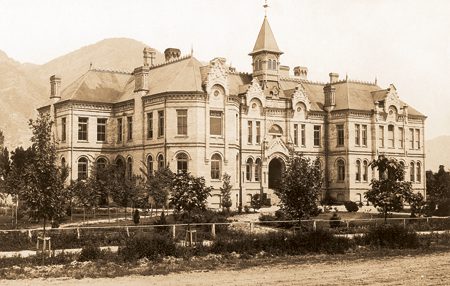By Todd R. Condie, ‘03
FOR more than 15 years the Office of Research and Creative Activities (ORCA) has served as the university’s liaison between research funding and projects on campus. In addition to managing the some 500 faculty research projects currently underway, ORCA is responsible for negotiating contracts and aiding proposals for future projects. “We try to take the administrative and bureaucratic part of grants and contracts off the faculty members’ shoulders,” explains Gary R. Reynolds, ’98, director of ORCA.
Although ORCA is a small research office relative to those at other universities, it has a secondary emphasis that many others don’t—undergraduate research. Every year ORCA sponsors a scholarship program to fund research and creative arts among undergraduate students. “Students have to write a proposal, and then only one-third of all applicants get funded. That element of competition and of being critically reviewed was something we wanted students to have,” says Reynolds.
Two hundred fifty of these $1,000 scholarships were awarded this year to fund everything from musical composition to biogenic mapping.
Mentoring environment grants, a second way ORCA benefits undergraduates, were first implemented just two years ago. These grants are awarded to faculty members who have integrated student participation into their research. “President Bateman has said that mentoring is a primary focus of the university. These grants provide students with an out-of-classroom enhancement to their education by creating a new mentoring environment or by bettering one that might already exist,” says Reynolds. More than 50 such projects were approved this year, amounting to more than $1 million.
Douglas R. McKinlay, ’68, associate professor of communications, is using his mentoring award from ORCA to fund a new course on television commercial production. “The ORCA money is critical. It allows us to do things that we couldn’t otherwise do and gives us latitude with the things we can create. It’s helping to fill a hole that past students have pointed out in our program.”
According to Reynolds, few universities place as much focus on funding undergraduates. “There are some that do fund undergraduates, but most all of them aim primarily at the science colleges. We were able to make awards in every college. We’re doing it with more money and with more students in all of the colleges. I don’t know of anyone else in the country who is doing that.”









